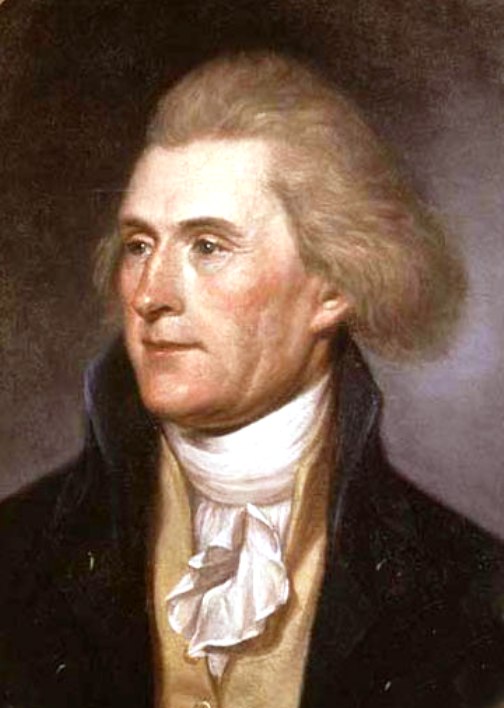"... to vindicate the honor of the human race..." — Thomas Jefferson
AM | @HDI1780
- The Trade of Marseilles. Dated from Marseille (9 May 1787), Thomas Jefferson receives a letter from Stephen Cathalan, Jr. (*). Here's the interesting part:
SIR Marseilles the 9th. May 1787. I hope this Letter will meet your Excellency at Cette [Sète], and on that account I direct it to M. Meinadier. I dare say, you have been pleased in Seing the famous Fontain of Vaucluse, as famous, by the lampid waters Spliting with a great noise against the rocks, as it is by the Loves of Petrarch and Laura [...] I remit you here inclosed the Copy, of the general Idea of the trade of Marseilles, by abbe raynal. I will Send one to Thos. Barclay Esqr. as Soon as I will have of his Letters, till now I have received none.
Jefferson's correspondent must be refering to the text of the second prize sponsored, but not written, by Raynal, at Académie de Marseille under the title: "Les causes de l'accroissement du commerce de Marseille et les moyens d'en assurer la prospérité". (The first prize, dated from 1786, was on criminal procedure). There is very little information on this issue. According to Gilles Bancarel, "Nous ne connaissons pas, faute d'informations, l'issue qui fut réservée à ce second prix" (Raynal ou le devoir de vérité. Paris: Honoré Champion, 2004, p. 377).
(*) Julian P. Boyd (ed.) The Papers of Thomas Jefferson, Vol. 11. Princeton University Press, 1955, p. 357.
_____________
- Too good to be true? The story about the dinner party in Passy, in which Raynal and his French colleagues are shown to be much shorter than Franklin and his American friends (thus refuting the degeneracy theory), is probably too good to be true. On 15 October 1787, William Carmichael sends Jefferson a letter containing a (slightly) less memorable account (*). Note that Raynal is not even counted among those attending:
I have received with great pleasure your Notes on Virginia and as yet have given them but a Cursory perusal. I think you have victoriously conbatted Buffon, Monsr. de P. and the Abbé Raynal. I do not know whether Dr. Franklin ever mentioned to you what passed at a Dinner at Paris at which I was present, on that contested point. At Table some one of the Company asked the Doctor what were his Sentiments on the remarks made by the Author of Recherches sur l'Amerique. We were five Americans at Table.
The Venerable Doctor regarded the Company and then desired the Gentlemen who put the question to remark and to Judge whether the human race had degenerated by being transplanted to another section of the Globe. In fact there was not one American present who could not have tost out of the Windows any one or perhaps two of the rest of the Company, if this Effort depended merely on muscular force. We heard nothing more of Mr. P's work and after yours I think we shall hear nothing more of the opinions of Monsr. Buffon or the Abbé Raynal on this subject.
(*) Julian P. Boyd (ed). The Papers of Thomas Jefferson, Vol. 12. Princeton University Press, 1955, pp. 240-241.
_____________
- The Report on Fisheries. For all his personal dislike of Raynal, the fact remains that Jefferson always cherised his Histoire des deux Indes volumes, not least because of their value as a source of statistical information. Thus, in his 1791 "Report on American Fisheries by the Secretary of State", Jefferson quotes the abbé (*). I don't have that text with me now, but it is worth noting that Jefferson's 1791 reports "incited Congressional emotions against British behaviour" [see]. This seems to correspond with the general tone of HDI 1780.XVI, where Raynal despairs about the power of the British and their ambition to establish themselves as the dominant force in North American fisheries.
(*) Julian P. Boyd (ed.) The Papers of Thomas Jefferson, Vol. 19. Princeton University Press, 1974, p. 210.
_____________

No comments:
Post a Comment